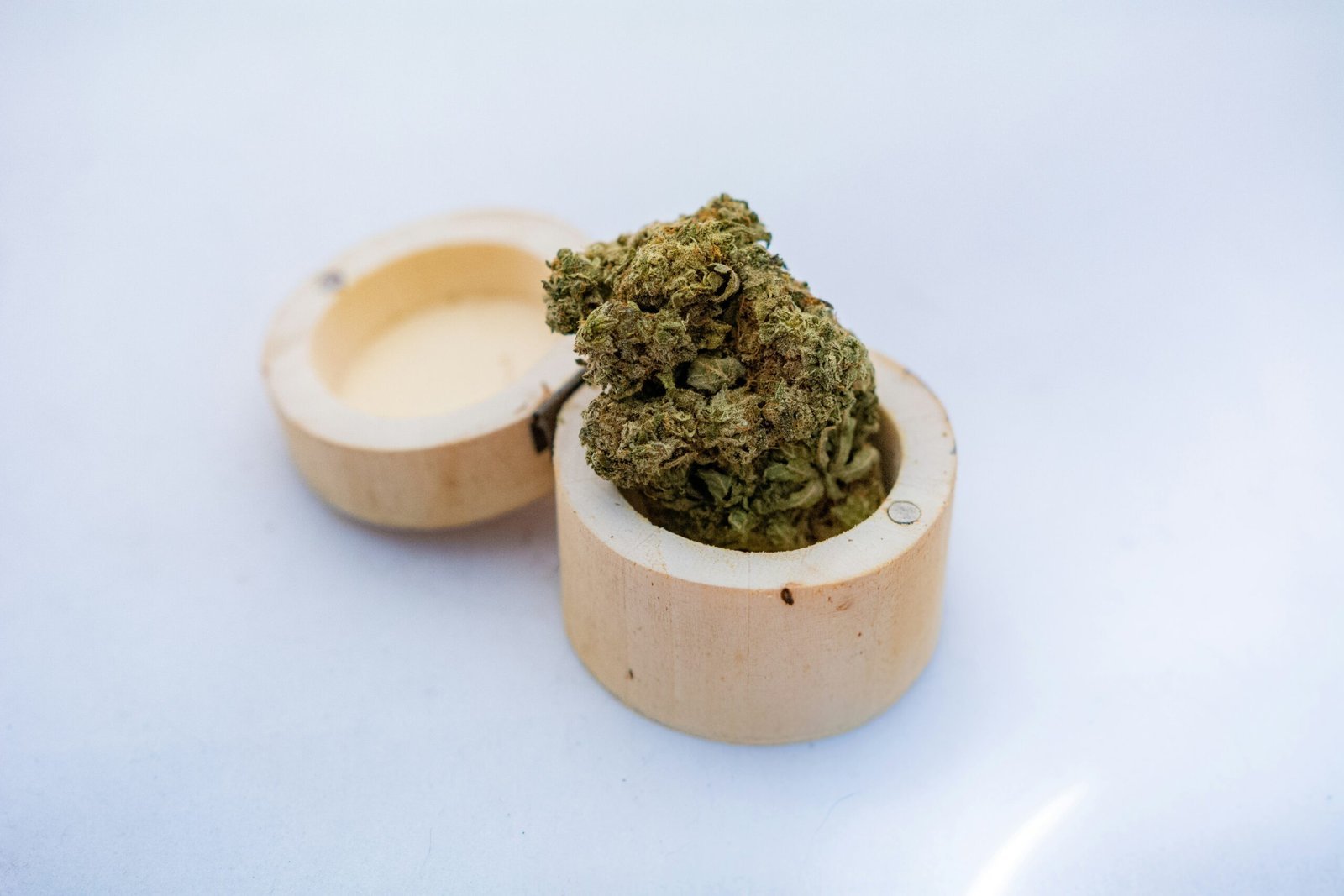
The Importance of a Strong Immune System
A robust immune system plays a pivotal role in maintaining overall health and wellness. It serves as the body’s primary defense mechanism against infections, diseases, and other harmful agents. When functioning effectively, the immune system can easily identify and combat pathogens such as bacteria, viruses, and fungi. This ability not only protects the body but also minimizes the risk of chronic illnesses that can arise when the immune response is compromised.
Moreover, a strong immune system is essential for promoting general well-being. It directly influences how one feels on a daily basis, affecting energy levels, mood, and even cognitive function. Individuals with weakened immunity might experience recurrent illnesses, prolonged recovery times, and heightened susceptibility to seasonal illnesses such as the common cold or flu. Therefore, enhancing immunity is vital for leading an active and fulfilling life.
Several common factors can contribute to a weakened immune system. Poor nutrition, lack of exercise, chronic stress, insufficient sleep, and certain medical conditions can all diminish immune function. Additionally, lifestyle choices such as smoking and excessive alcohol consumption have been identified as detriments to immune health. It is crucial for individuals to be aware of these factors, as they can significantly impact the effectiveness of immune responses and the body’s ability to fend off infections.
By recognizing the importance of a strong immune system and its influences on overall health, individuals can take proactive steps to foster their body’s defenses. In turn, this understanding highlights the necessity of natural remedies and lifestyle modifications aimed at permanently enhancing immune competence, ensuring a better quality of life.
Essential Vitamins and Minerals for Immunity
A robust immune system is reliant on various vitamins and minerals that play crucial roles in enhancing the body’s natural defense mechanisms. Among these, Vitamin C, Vitamin D, Zinc, and Selenium stand out for their significant contributions to immune function. Ensuring adequate intake of these nutrients can bolster your body’s ability to fight infections and maintain overall health.
Vitamin C is often regarded as a premier immunity booster. It is a potent antioxidant that helps protect cells from damage and supports various cellular functions of both the innate and adaptive immune system. Rich sources of Vitamin C include citrus fruits, strawberries, bell peppers, and broccoli. The recommended daily intake for adults is approximately 75 to 90 milligrams, though higher amounts may be beneficial during illness.
Vitamin D plays a multifaceted role in immune response regulation. It enhances the pathogen-fighting effects of monocytes and macrophages, which are white blood cells essential in combating infections. Natural sources of this vitamin include fatty fish, fortified foods, and exposure to sunlight. The recommended daily intake varies, but aiming for about 600 to 800 IU is advisable for most adults.
Zinc is another critical mineral vital for immune cell function and the inflammation response. It facilitates the development and activation of T-lymphocytes, essential players in the adaptive immune system. Food sources rich in zinc include meat, shellfish, legumes, seeds, nuts, and whole grains. The recommended daily intake for adults is around 11 milligrams for men and 8 milligrams for women.
Lastly, Selenium contributes to the immune response and antioxidant defense system. It is essential for the production of various immune cells and helps prevent cellular damage. Foods high in selenium include Brazil nuts, seafood, and organ meats. The daily recommended intake is about 55 micrograms for adults. By incorporating these essential vitamins and minerals into your diet, you can effectively support your immune health.
Herbs and Spices That Bolster Immunity
Herbs and spices play a significant role in enhancing the body’s immune system, offering a natural way to safeguard health. Among the most renowned is garlic, known for its allicin content, which has potent antimicrobial properties. Regularly incorporating garlic into meals can help to ward off infections and has been shown to help lower blood pressure and improve cardiovascular health. It can be consumed raw, added to dishes as a flavor enhancer, or even taken as a supplement for those averse to its taste.
An equally powerful spice is ginger, recognized for its antioxidant and anti-inflammatory effects. Ginger is not only effective in boosting immunity but also aids digestion and alleviates nausea. Incorporating fresh ginger into tea, smoothies, or stir-fries can be a delicious way to harness its health benefits. It can be consumed fresh, dried, or as an essential oil, providing versatile options for enhancing meals and wellness routines.
Turmeric, often cited for its active compound curcumin, is another herbal powerhouse. Curcumin is celebrated for its strong anti-inflammatory and antioxidant properties, making turmeric a valuable addition to immune-boosting strategies. Incorporating turmeric into curries, soups, or teas can amplify the body’s defenses. A common practice is to mix turmeric powder with warm milk to create a soothing drink known as “golden milk.”
Echinacea, particularly in the form of teas, tinctures, or capsules, is widely recognized as an immune stimulant. Studies suggest that echinacea can help reduce the duration and severity of colds. When taking echinacea, it is advisable to start at the onset of symptoms for maximum effectiveness.
By making these herbs and spices a staple in one’s diet, individuals can effectively support and enhance their immune system. These natural remedies not only contribute to better overall health but also provide an enjoyable way to elevate culinary creations.
The Role of Probiotics in Immunity
The human gut is home to trillions of microorganisms, collectively known as the gut microbiome, which play a pivotal role in maintaining overall health and wellness. Among these microorganisms, probiotics are particularly beneficial, as they contribute significantly to the body’s immune defense system. Probiotics are live bacteria and yeasts that provide health benefits when consumed in adequate quantities. They are instrumental in balancing the gut microbiome, which is crucial for a robust immune system.
A balanced gut microbiome is essential for preventing infections and reducing inflammation. It ensures that beneficial bacteria thrive while harmful pathogens are kept at bay. Research has indicated that a healthy population of probiotics can help modulate immune responses, enhancing the body’s ability to fend off illnesses. This modulation plays a significant role in fighting off respiratory infections, gastrointestinal disturbances, and various inflammatory diseases.
Natural sources of probiotics include fermented foods such as yogurt, kefir, sauerkraut, kimchi, and kombucha. These foods are not only tasty but also rich in live cultures that can boost gut health. Regular consumption of these probiotic-rich foods can lead to a more diverse gut microbiome, which is associated with improved immunity. Additionally, probiotic supplements are available for those who may have difficulty obtaining sufficient probiotics through diet alone.
It is important to note that while probiotics can enhance immune function, they should be part of a holistic approach to health. A balanced diet, adequate sleep, regular exercise, and stress management all play crucial roles in supporting immunity. Incorporating probiotics is a valuable step in optimizing gut health, greatly benefiting the immune system’s overall efficacy. By fostering a healthy gut microbiome, individuals may experience not only improved immunity but also enhanced overall health and well-being.
Foods That Fight Inflammation
Inflammation is a natural response by the body to injury and infection, but chronic inflammation can lead to various health issues, including weakened immunity. Incorporating specific anti-inflammatory foods into your diet can effectively combat this adverse condition, supporting your body’s defense mechanisms. Berries, such as blueberries, strawberries, and blackberries, are rich in antioxidants and vitamins, which help reduce inflammation. Their high levels of flavonoids have been shown to lower inflammatory markers, contributing to an enhanced immune response.
Fatty fish, including salmon, mackerel, and sardines, are also powerful anti-inflammatory foods. These types of fish are abundant in omega-3 fatty acids, which play a crucial role in reducing inflammation within the body. Studies indicate that omega-3s can decrease the production of inflammatory molecules and substances, thereby supporting the immune system more effectively. Regular consumption of fatty fish can help maintain optimal health and bolster your body’s defenses against various illnesses.
Leafy greens, such as spinach, kale, and Swiss chard, are another excellent category of anti-inflammatory foods. These vegetables are rich in vitamins A, C, and K, as well as antioxidants and phytonutrients, which help combat oxidative stress and reduce inflammation. Incorporating a variety of these greens into your meals not only provides essential nutrients but also promotes a robust immune system response.
Other powerful anti-inflammatory foods include nuts, particularly walnuts and almonds, along with avocados and olive oil, which are rich in healthy fats and beneficial compounds. Together, these foods contribute significantly to reducing inflammation, allowing for a stronger immune function. By prioritizing these foods, you can create a diet that not only supports your overall health but also fortifies your body’s ability to fend off illnesses.
The Power of Hydration
Hydration plays a crucial role in maintaining optimal immune system function. Water facilitates numerous physiological processes essential for health and wellness. When the body is adequately hydrated, it promotes the efficient circulation of lymphatic fluid, which is vital in transporting white blood cells and other immune system components throughout the body. This fluid helps in identifying and destroying pathogens, making proper hydration a key factor in enhancing immunity.
Moreover, sufficient water intake aids in the detoxification process. The kidneys, responsible for filtering waste products and excess substances from the bloodstream, rely heavily on adequate hydration to function optimally. Without sufficient water, the kidneys may struggle to expel toxins effectively, leading to a buildup of harmful substances in the body that can compromise immune strength. By flushing out these toxins, hydration serves as a natural remedy that bolsters immune defenses.
To maintain optimal hydration levels, it is essential to incorporate a consistent intake of fluids throughout the day. While individual needs may vary based on factors such as activity level, age, and climate, a general guideline suggests consuming at least eight 8-ounce glasses of water daily, known as the “8×8 rule.” Additionally, incorporating hydrating foods such as fruits and vegetables like cucumbers, oranges, and watermelon can further enhance fluid intake.
Using reminders or hydration apps can be helpful in ensuring that you drink enough water consistently. Moreover, paying attention to the body’s signals, such as thirst and the color of urine, can provide insight into hydration status. Ultimately, prioritizing proper hydration not only supports the immune system but also contributes to overall health and well-being.
Lifestyle Changes for a Stronger Immune System
Strengthening the immune system is an essential goal for overall health, and lifestyle changes play a crucial role in achieving this. One of the most effective ways to enhance immunity is through regular exercise. Engaging in physical activity helps improve circulation, which allows immune cells to move more freely throughout the body. Research indicates that moderate exercise, such as brisk walking or swimming, can lead to improved immune function, making it a vital component of a healthy lifestyle. Aim for at least 150 minutes of moderate aerobic activity per week, alongside muscle-strengthening exercises on two or more days.
Adequate sleep is another significant factor influencing immune health. Studies have shown that poor sleep can impair the immune response, making individuals more susceptible to infections. The National Sleep Foundation recommends that adults aim for 7-9 hours of quality sleep per night. Implementing a consistent sleep schedule, creating a restful environment, and practicing relaxation techniques can enhance sleep quality, thereby bolstering the immune system.
Furthermore, effective stress management techniques are essential for maintaining immune health. Chronic stress can lead to the release of stress hormones, which may suppress the immune response. Incorporating mindfulness practices such as meditation, yoga, or deep-breathing exercises can help alleviate stress levels. Additionally, nurturing social connections and engaging in enjoyable activities contribute to emotional well-being, further supporting the immune system.
To summarize, lifestyle changes, including regular exercise, adequate sleep, and effective stress management, are critical for a robust immune system. By adopting these practices, individuals can enhance their body’s natural defenses and improve their overall health.
Natural Supplements to Consider
In the quest to boost immunity naturally, various supplements have garnered attention for their potential benefits. Among the most notable is elderberry. Rich in antioxidants, elderberry is known for its ability to enhance immune response and reduce the severity and duration of respiratory infections. Typically, a daily dose of 300 to 600 mg of elderberry extract is recommended, but it is advisable to start with lower doses to assess individual tolerance. However, individuals pregnant or breastfeeding should exercise caution and seek medical advice before use.
Astragalus is another supplement recognized for its immune-boosting properties. This herb, widely used in traditional Chinese medicine, is believed to promote the proliferation of immune cells such as macrophages, enhancing their ability to defend against pathogens. For adults, a standard dosage is usually around 1 to 2 grams of dried root per day. While astragalus is generally considered safe, those on medications for autoimmune diseases should consult a healthcare provider due to its possible interactions.
Mushroom extracts, particularly reishi, cordyceps, and shiitake, are increasingly popular in the realm of natural immunity enhancement. These fungi contain beta-glucans, which are known to stimulate the immune system. A daily intake of about 1 to 3 grams of mushroom extract can provide these benefits. However, individuals with mushroom allergies or those on immunosuppressive therapies should be cautious and consult healthcare professionals prior to use.
Overall, while natural supplements like elderberry, astragalus, and various mushrooms offer promising means to boost immune function, it is crucial to consider dosage recommendations and any potential contraindications. Personal health conditions and existing medications can significantly influence the safety and effectiveness of these supplements, emphasizing the importance of individualized healthcare guidance.
Integrating Immunity Boosters into Your Daily Routine
Incorporating natural remedies to boost immunity into your daily routine requires thoughtful planning and commitment. Start by analyzing your current lifestyle and identifying areas where changes can be made to include these beneficial practices. Meal planning is a fundamental step in ensuring that your diet is rich in immunity-boosting nutrients. Aim for a balanced diet that emphasizes colorful fruits and vegetables, whole grains, lean proteins, and healthy fats. Foods such as citrus fruits, garlic, spinach, and nuts offer essential vitamins and minerals that enhance the immune response.
Consider dedicating time each weekend to prepare meals for the week ahead. This practice not only saves time but also allows you to have nutritious options readily available. Incorporate smoothies packed with immune-supporting ingredients like ginger and turmeric for quick breakfasts or snacks. Make it a habit to include one or two servings of these foods in your meals each day, gradually building a robust intake of immune-enhancing nutrients.
Alongside dietary adjustments, it is equally important to establish a regular exercise regimen. Physical activity not only strengthens the immune system but also contributes to overall health. Aim for at least 150 minutes of moderate aerobic exercise per week, combined with strength training exercises on two or more days. Activities such as brisk walking, cycling, or yoga can significantly boost your immunity while reducing stress levels.
Forming habits to incorporate these changes can be facilitated by setting small, achievable goals. For example, consider setting a rule to drink a glass of water infused with lemon in the morning or taking a short walk after meals. Such simple adjustments to your daily routine can lead to lasting health benefits, helping your immune system perform at its best. By integrating these natural remedies consistently, you can effectively enhance your body’s defenses over time.

